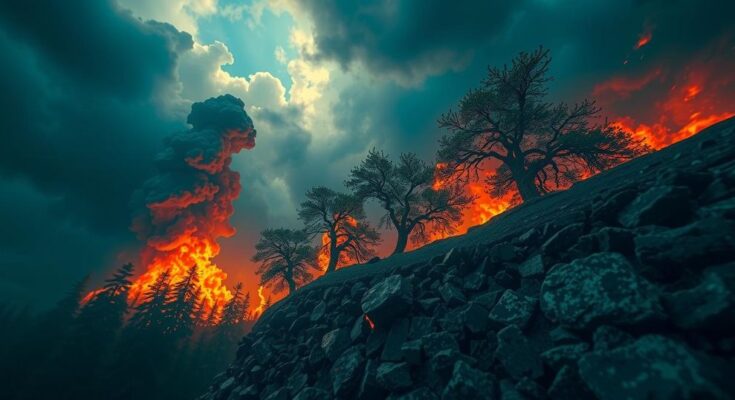COP16 biodiversity summit reveals alarming neglect of biodiversity in favor of climate change amidst declining wildlife populations. With 80% of countries failing to submit plans and minimal governmental engagement, the article critiques the media’s focus, advocating for a balanced narrative that emphasizes the interconnectedness of climate and biodiversity challenges to inspire action and hope for ecological recovery.
The recent COP16 biodiversity summit has highlighted an alarming trend—the overwhelming global emphasis on climate change, to the detriment of addressing biodiversity loss. While COP29, focused on climate change, draws significant media attention, COP16 has nearly fallen off the radar, with 80% of participating nations failing to submit biodiversity action plans as promised. This neglect comes despite the urgent challenges we face; wildlife populations have plummeted by an average of 73% since 1970, and 46,000 species are currently at risk of extinction, including a significant number of trees. The stark contrast in governmental attention is notable: Prime Minister Rishi Sunak faced backlash for his hesitance to attend climate conferences, yet there is minimal pressure for leaders to engage in discussions on biodiversity. This shift in focus dates back to the late 20th century, when environmental movements began prioritizing climate metrics over the conservation of specific species and habitats. Consequently, there is now up to eight times more media coverage of climate crises compared to biodiversity issues. Though some believe these crises are interconnected—climate change negatively impacting biodiversity and vice versa—this narrowly focused narrative on temperature averages is both sterile and abstract, lacking the emotional appeal necessary to galvanize action. To effectively communicate the urgency of environmental degradation, experts opine that humanity’s connection to these issues should be emphasized. Incorporating the human cost of climate change and the plight of endangered species can create a more compelling narrative that captures public interest and encourages action. This shift in perspective may provide hope as well, revealing the resilience of nature when given the opportunity to recover. By fostering a positive vision for our environment, there is potential for mobilizing collective effort toward restoring ecological balance.
The climate crisis encompasses two critical dimensions: climate change and biodiversity loss. An international conference, COP16, recently convened to discuss biodiversity, but struggled to gain attention compared to COP29, which focuses on climate change. The disparity highlights a systemic neglect of nature-related issues within global environmental discourse, leading to significant biodiversity targets being missed. Wildlife extinction rates are rising starkly, and essential ecosystems are rapidly deteriorating. This situation necessitates a reevaluation of the current focus on climate metrics at the expense of biodiversity, as both issues are deeply interlinked and must be addressed concurrently to avoid catastrophic environmental outcomes.
In summary, the climate crisis and biodiversity loss are intricately connected, demanding equal attention and action. The negligible focus on biodiversity at events like COP16 reflects a troubling trend that must be addressed to cultivate a more holistic understanding of environmental health. Enhancing communication strategies to emphasize the human and ecological costs of climate change may foster a sense of urgency and inspire collaborative efforts towards meaningful conservation. Ultimately, a balanced narrative can pave the way for renewed hope as nature’s ability to recover should not be underestimated.
Original Source: www.theguardian.com




